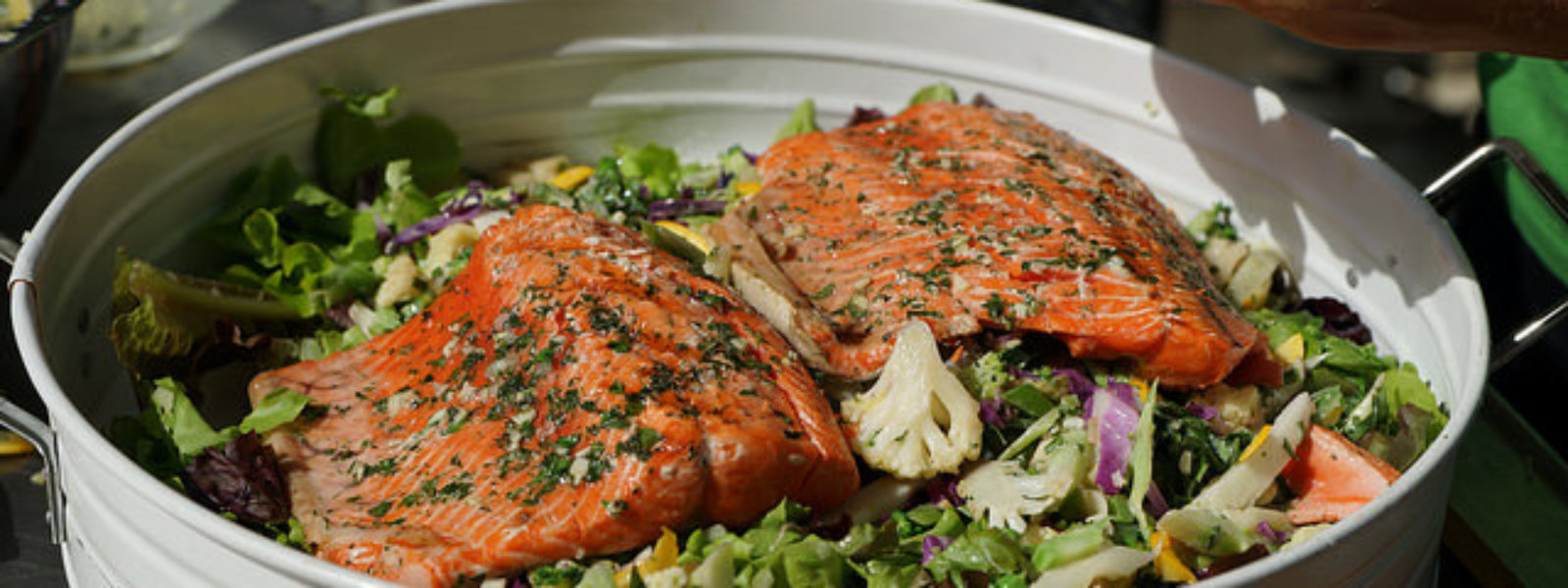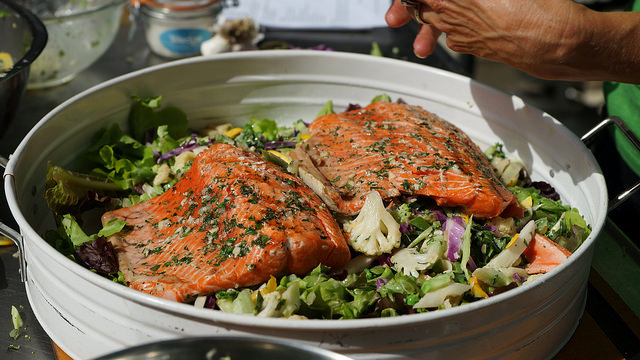By: Mallory Franklin, MCFM Nutrition Liaison
How often do you stop and really appreciate all the things your brain does for you? We live such busy lives, and our brains not only keep up with us, but keep us breathing and moving, literally! While you are rushing around, your brain will make sure your lungs keep taking in air, your heart keeps beating, and your vital organs keep functioning. On top of the basic necessities for survival, your brain also assists in your capacity to learn, remember, reason, and handle emotions. So why not do something nice for your buddy in your skull! There is increasing appreciation for the role of good nutrition and exercise in brain health. A healthy diet and frequent exercise protects from mental disorders such as anxiety and depression, improves your ability to learn and perform tasks, and protects you from age related disorders, dementia and Alzheimer’s. Isn’t that wonderful news! So what can you do to better serve your brain?
Fuel your brain right
Do you ever have difficulty focusing, get tired, or loose productivity during the day? That is because your brain is the most energy demanding organ in your body, every day your brain consumes about 480 calories and you might not be providing it the fuel it needs. Unlike other organs your brain has no capacity to store energy and relies solely on carbohydrates circulating in your blood (blood glucose). Over the course of the day, your brain will use a total of 120g (about ¾ cups) of glucose from your blood. The best way to fuel your brain is to avoid eating simple carbohydrates (processed sugars) and eat foods that contain complex carbohydrates that release sugars slowly. That way you maintain a steady supply of glucose throughout the day and your brain can continue to thrive! Complex carbohydrates save you from that afternoon energy crash at work, keeping your brain sharp and productivity high! My favorite brain fueling foods include hearty whole grain breads as well as variety of vegetables from any of our farmers.
Support your brain right
How does someone learn a new skill, remember something, or think in a new way? The answer comes from a specific omega-3 fatty acid called DHA (Docosahexaenoic acid) found in cold water fish such as trout, salmon, and tuna. DHA is important for brain health because it increases synaptic plasticity, which is a fancy way of saying your brain is more equipped to change and grow. This makes it easier to problem solve, learn new things, deal with emotions, break a bad habit, or acquire a new habit. Deficiencies in DHA makes it harder for your brain to do these things and is associated with risks of ADHD, depression, impaired learning, and even dementia. Basically, providing your brain with DHA will make it easier for you to be the best version of yourself! If you are looking for a brain boost try some smoked salmon or trout from some of my favorite food artisans! You will then be ready to try a new sport, pick up a new hobby, or study a new language!
Exercise your brain right
Exercise has classically been considered a part of a healthy lifestyle because of its beneficial effects on weight maintenance and overall metabolic health. These are great reasons to exercise, but to make the deal even sweeter, exercise is also linked to improving mental health! Exercise can help you cope with your emotions and protect you from anxiety and depression. This brings the phrase “runners high” to a whole new meaning! Importantly, the effects of healthy eating and exercise seem to be additive, meaning, doing one or the other is beneficial, but doing both is twice as beneficial for your brain. So do your brain a favor and get active! Walk, run, or bike to the market and enjoy some wholesome foods that will make for a healthier brain and a better you.
If you have a question or just want to make a comment please submit them to me via the form on the Nutrition Corner page.
Foods For Thought:
- Whole grain bread
- Leafy greens like kale, chard and spinach (Click here for recipes!)
- Wild salmon and other fish (Click here for recipes!)
- Beans (Click here for recipes!)
- Blueberries
Click here for Market Chef Jenny Breen’s recipe for Simple Garlic Rubbed Salmon with Vegetables and Basil Dressing!
References:
Berg, Jeremy M., John L. Tymoczko, Lubert Stryer, Jeremy M. Berg, John L. Tymoczko, and Lubert Stryer. 2002. Biochemistry. 5th ed. W H Freeman.
Gómez-Pinilla, Fernando. 2008. “Brain Foods: The Effects of Nutrients on Brain Function.” Nature Reviews. Neuroscience 9 (7): 568–78. doi:10.1038/nrn2421.
Lai, Jun S., Sarah Hiles, Alessandra Bisquera, Alexis J. Hure, Mark McEvoy, and John Attia. 2014. “A Systematic Review and Meta-Analysis of Dietary Patterns and Depression in Community-Dwelling Adults.” The American Journal of Clinical Nutrition 99 (1): 181–97. doi:10.3945/ajcn.113.069880.
Meeusen, Romain. 2014. “Exercise, Nutrition and the Brain.” Sports Medicine (Auckland, N.Z.) 44 Suppl 1 (May): S47–56. doi:10.1007/s40279-014-0150-5.

